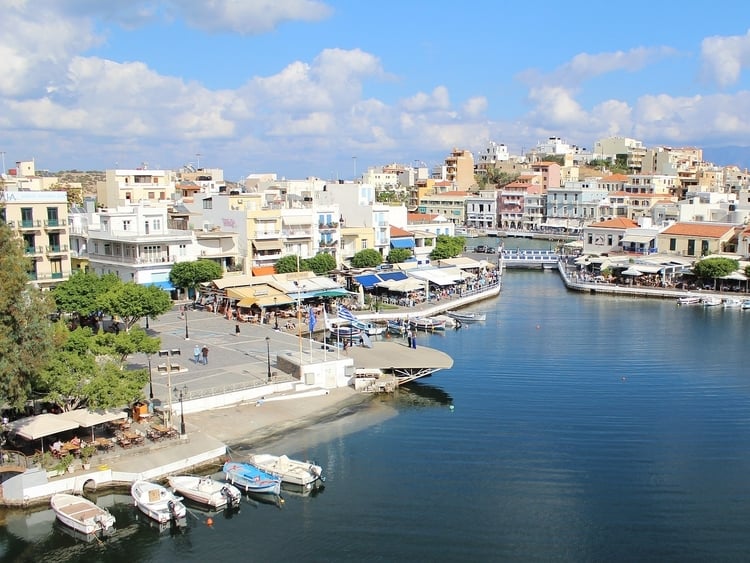What To Expect
Greece is a very popular country with tourists thanks to its fantastic weather, history, cuisine, and scenery. Most people visit Greece to go island hopping and take in the sun on its spectacular beaches, but there’s a lot more to the country than just a beach holiday!
The majority of travelers start their trip to Greece in its capital, Athens. Being the birthplace of Europe, there is so much history and ancient architecture to discover here, headlined by the Acropolis in the middle of the city.
Other cities and landmarks worth a visit on the mainland include Thessaloniki, also known as the cultural capital of Greece, the birthplace of the Olympic Games in Olympia, the fabled Mount Olympus, and the hanging monasteries of Meteora.
However, what Greece is most famous for now is all the stunning islands it lays host to. Some of the most well-known include Santorini, Mykonos, Crete, Rhodes, Corfu, and Zakynthos. The country has an extensive ferry system connecting all of these islands, making it very easy to visit several of them on the same trip.
Whether you want to bask in the history or quite simply the sun, Greece is a spectacular destination with lots to see and do for everyone.

Greece is part of the Schengen Area which has a single visa policy for all the countries that are in it. Citizens of most developed countries can enter the Schengen Area visa-free for up to 90 days in a 180 day period. If you are not a citizen of a visa-exempt country, you must go to the nearest Greek embassy and apply for a Schengen Visa to be granted entry.
There are no health risks in Greece requiring any specific travel vaccinations for normal travelers. Make sure you are up to date on your standard vaccinations and consult a health professional for further advice.

This page may contain affiliate links which means I get a small commission, at no extra cost to you, if you make a purchase with them. This helps keep the site running and the travel tips coming! For more info, check out my Privacy Policy & Disclosure.
Key Information
Population: 10 Million
Capital City: Athens
Languages Spoken: Greek
Currency: Euro (EUR/€)
State Railway: TrainOSE
Driving Side: Right
Largest Airports:
1. Athens (ATH) – Eleftherios Venizelos
2. Heraklion (HER) – Nikos Kazantzakis
3. Thessaloniki (SKG) – Makedonia
4. Rhodes (RHO) – Diagoras
5. Corfu (CFU) – Ioannis Kapodistrias
Best Time To Visit
Greece has two main climates and the further south you go, the warmer it gets. Northern Greece has a continental climate meaning cold winters and hot summers whereas Southern Greece and its islands have a mediterranean climate meaning mild winters and very warm summers.
The best time to visit Greece depends on the type of vacation you’re going on. If you are having a beach holiday and want to go island hopping, then the summer (June – August) is your best bet. However, if you want to visit historical sites and the northern part of the country, then you should go during the shoulder months (September – October & April – May) when temperatures are pleasant and enjoyable.
If you do travel during the high season, make sure to book your transportation and accommodation in advance to avoid sold-out tickets and fully-booked rooms.
High Season: May – August
Low Season: October – March
Top 5 Destinations

Athens

Santorini

Mykonos

Crete

Thessaloniki
Currency Information

The currency used in Greece is the Euro (EUR/€). The notes come in denominations of 5€, 10€, 20€, 50€, & 100€.
The Euro is further divided into 100 euro cents – “Lepto” in Greek – (c). The coins come in denominations of 1c, 2c, 5c, 10c, 20c, 50c, 1€, & 2€.
Use the currency converter below to determine the latest exchange rate.
Tipping Guide
Tipping is customary in Greece, but at much more modest rates than in countries like the USA. Here are some important guidelines to follow:
Hotel Bellhops: 1-2€ per bag
Hotel Housekeepers: 1-2€ per day
Restaurant Servers: most places already add a service charge, but if you don’t see one, tip up to 10% of the total bill
Cafés & Baristas: round up to the nearest whole number
Bartenders: round up to the nearest whole number
Taxi/Uber Driver: round up to the nearest whole number
Tour Guide: up to 5€ per day of the tour
Note: tips should be left in cash and given directly to the person you want to receive them when you pay your bill.
Power Outlet Information


Just like most of Europe, Greece mainly uses the Type C power outlet. In addition, they also use the Type F outlet.
Type C & E plugs can fit in a Type F outlet as long as they are compatible. Make sure your Type C adapter is oval-shaped or you have a Type E/F adapter.
Get your compatible Type C & Type E/F adapter here.
The voltage used in Greece is 230V. Learn more about how this may affect your electronic devices in my Guide to the Top Travel Accessories.

Cellphone Information
Greece has very good overall 4G LTE coverage, but it can be spotty in rural areas. Make sure your phone is GSM-compatible with the primary 3G frequency and one of the primary 4G LTE bands used in the country to ensure you will always have a connection.
Learn more about this in my Guide to Travel-Ready Phones.
Information about local prepaid SIM cards in Greece
Calling Code: +30
Emergency Number: 112 (Police, Ambulance, & Fire)
3G Frequencies Used: 2100 (primary) + 900
4G LTE Bands Used: 3 & 20 (primary) + 7


